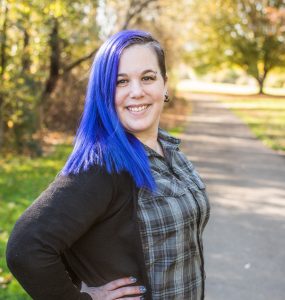 Source: JK Sulit/Shutterstock
Source: JK Sulit/Shutterstock
With all the generous things credit unions do on a regular basis, I usually don't worry about the type of image the industry projects to the public, but a few recent news items have made me a little concerned. For one, the American Bankers Association and Independent Community Bankers of America have both launched anti-credit union ad campaigns, which attack things like their tax-exempt status and purchases of banks, in an attempt to convince consumers that credit unions have "far exceeded their statutory mission to serve individuals of modest means."
Then, news spread of the NCUA's sudden, secretive taxi medallion loan sale to hedge fund Marblegate Asset Management LLC, which left New York City taxicab drivers who are unable to pay off the loans with a lot of uncertainty about their futures. While the NCUA assured drivers the hedge fund would "work with drivers to renegotiate loan terms" (only time will tell on that), the move wasn't a good look for the agency and did not align with the credit union philosophy of putting members' needs first.
Recommended For You
Industry executives I've spoken with have said "telling your credit union's story" is one of the best ways to attract more consumers to the movement, and I'd like to tell one of those stories here. You may have already heard it because it made international news, but it's worth retelling because, given the potentially damaging items mentioned above, it should get in front of as many eyes as possible.
On Christmas Eve 2019 in Clackamas, Ore., near Portland, a U.S. Bank customer was stranded at a gas station because the bank had placed a hold on his paycheck and he did not have enough money in his account to fill his tank. U.S. Bank employee Emily James, with permission from her supervisor, came to his rescue by driving to the station and giving him $20.
A week later, James and her supervisor were fired for helping the cash-strapped customer. The official reason given by U.S. Bank for the termination, James told CU Times, was "an unauthorized interaction with a customer," except it wasn't unauthorized, according to James. "I had permission from a supervisor to help the stranded customer, because we had exhausted all other known options," she said.
When news hit that a big bank had fired an employee for doing a good deed, the public's response was very "Team Emily," and James suddenly found herself in the spotlight, which she said was "overwhelming and humbling." "People sent me cards, letters and even dog food for my fur babies. I was really struggling with making ends meet. I made it through because of the kindness of strangers, family and friends," she said.
 Emily James
Emily James Perhaps best of all, approximately 24 employers – about 20 of which were credit unions – contacted Emily with an interest in hiring her. "It was a testament to the difference between the way traditional banks do business and the way many credit unions do business," James noted.
One of those was Community First Credit Union ($546 million in assets) in Santa Rosa, Calif., which had just awarded an employee for an act of kindness toward a member. Community First Chief Marketing and HR Officer David Williams explained that after an elderly member's car was stolen out of a nearby parking lot, a branch employee assisted the member by calling the police, helping her with the police report and driving her home. The fact that James was punished for a gesture similar to one that a Community First employee received praise for prompted the credit union to reach out to James about employment.
Within just one week, Community First flew James down to Santa Rosa, had her interview with about 10 people from different departments, and made her a job offer. She's now in the process of moving over 600 miles south with her two dogs to start her new position as a training specialist for Community First.
"If you look at Emily as a symbol, she's like a credit union person who was in a banker's body," Williams said. "She knew what was reasonable, kind, loving and empathetic. We rewarded someone for that kind of behavior, and at a big bank she was fired for it. That speaks volumes." Williams said those interviewing her agreed she possessed many qualities Community First was seeking, including a mentor quality, passion for teaching, curiosity about how things work, graciousness and a great sense of humor. He added that because the logistical elements of the hiring process (flights, schedules, etc.) fell perfectly into place so quickly, hiring her felt serendipitous. "We were meant to have her," he said.
The feelings were mutual; James said she was sold on Community First's atmosphere, vibe, and genuine sense of caring for fellow employees and members. "Everyone addressed me with kindness and respect. It just felt right!" she said, adding that she is really looking forward to celebrating helping others.
Meanwhile back in Portland, both James and her supervisor were invited to return to their old jobs at U.S. Bank, which publicly defended the terminations until a month after the Christmas Eve incident. Its CEO then released an apology, just after the New York Times ran an op-ed blasting the bank's actions. According to The Oregonian, James' supervisor did in fact return to work at the bank.
When asked what she hopes U.S. Bank learned from the ordeal, James said, "Don't outsource your human resources." She pointed out a blatant disconnect at the bank between frontline employees and the individuals who made decisions about those employees. "Human resources should know employees personally and be onsite working with them daily," she said. "Ironically, at U.S. Bank, their human resources, public relations and legal team were all outsourced, which I believe added to the chaos of this situation."
James added that she hopes the bank learns to empower its employees to be able to use common-sense solutions based on real people in real-world situations, not be so quick to make statements to the media without fact-checking, and listen to the "little guy" in the company. "Your frontline employee has the most contact with your customers and the biggest impact on their experience," she said.
James and Community First's story represents the stark difference between credit unions and large banks, and is the kind that credit unions need to keep telling, especially when their reputation may be on the line. What's more, it can inspire credit union employees who need a reminder of the "why" behind their work, or a reminder that negative events are often blessings in disguise (for James, getting fired opened the door to a promising new life and career). We wish James all the best of luck in her new job and home!
 Natasha Chilingerian
Natasha Chilingerian Natasha Chilingerian is executive editor for CU Times. She can be reached at [email protected].
© Touchpoint Markets, All Rights Reserved. Request academic re-use from www.copyright.com. All other uses, submit a request to [email protected]. For more inforrmation visit Asset & Logo Licensing.







